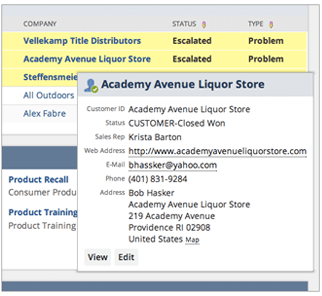Product Features
For Wholesale Distribution
Home / Support
Menu
Support
Exceed Your Customers' Expectations
Does your support team have a 360-degree view of each customer?
Can you use support data to inform and improve your products and services?
NetSuite offers self-service support solutions to your customers while empowering your team to meet customer needs with detailed case management, efficient returns, and tracking for field services.
Case Management
- Empower your support team with a full view of each customer.
- Escalate customer tickets.
- Track product defects as you support customer returns.
- Schedule and dispatch field technicians.
- Bill field services by T&M, fixed cost or warranty.
Customer Self-Service
- Offer a comprehensive self-service customer portal.
- Provide access to orders for tracking and management.
- Deliver knowledge base content and FAQ.
- Reduce support time through self-service efforts.

Business Impact
Product Issues
Uncover problem areas through real-time support visibility.
Product Support Costs
Reduce support overhead with self-service options.
Cost to Close
Analyze your support operations to maximize efficiency.




























